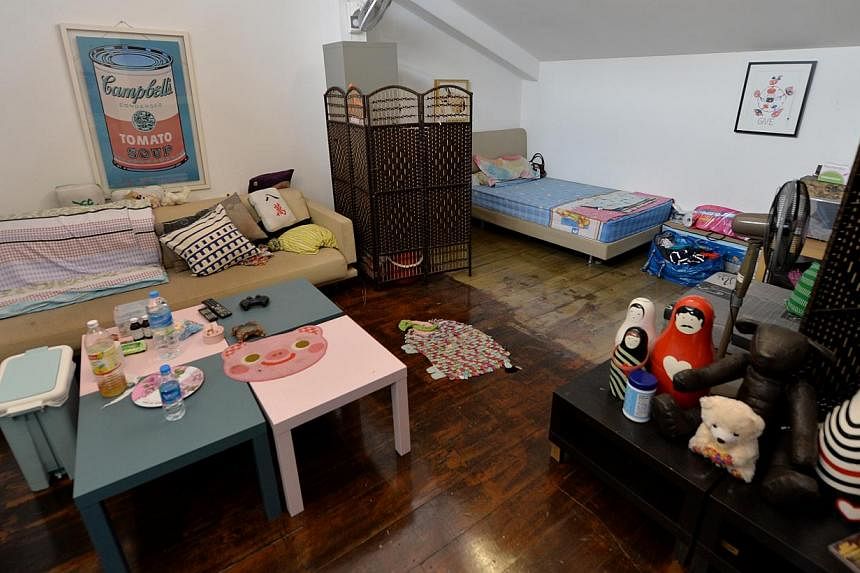In the attic of an old shophouse in central Singapore, a space the size of a typical living room has been transformed into what could pass for a student dormitory, complete with piles of laundry, mismatched furniture and makeshift dividers for privacy.
But to its three current occupants, this attic is more than a temporary place to stay - it is a sanctuary where they live as females, not as the males they were born as.
"It is Singapore's first shelter for homeless transgender individuals," co-founder June Chua said proudly as she showed The Sunday Times around.
She is 42 years old. When she was 17, she had a sex-change operation in Thailand. Her partner in running the shelter is her 45-year-old sister Alicia, who was also born male but lives as a woman, although she has not chosen surgery.
When the younger Ms Chua returned to Singapore after her sex-change operation in 1990, she found that few people could accept her new identity, so she dropped out of junior college.
But she considers herself lucky - her parents did not make any fuss about her taking hormones to develop breasts, or when she went under the knife and later changed her sex officially in her identity card.
"I know a lot of transgender people who face difficulties in finding acceptance from their families and getting employment," said Ms Chua, whose day job is running a women's healthcare centre. "They get kicked out of their homes, drop out of school and get rejected by employers. They have to fight to survive."
Shelters and community care centres have also rejected transgender individuals or insisted on placing them apart, making it tough for them to seek social support among one another, said Ms Chua.
Mr Leow Yangfa, deputy executive director of Oogachaga, a counselling and personal development agency for lesbian, gay, bisexual and transgender people, said: "We understand that in Singapore, many social service and healthcare service providers refer to the gender indicated on official identity documents, instead of recognising the person's gender identity.
"Understandably, some service providers are unsure of or not trained in how to handle such situations in a sensitive way and may choose to turn away people who need help."
Wanting to fill what she calls a "void", Ms Chua decided to set up a shelter under her social cause, The T Project. Last September, she secured the attic space on the goodwill of a non-profit organisation.
She requested that the identity of the organisation and the shelter's address not be published because of worries that they could become targets.
The space can comfortably house five people and maintenance is overseen by a few volunteers from the transgender community. There have been about a dozen applicants so far asking for a place and all go through a vetting process to ensure they really need help.
"I have one other rule: no fighting with one another," said Ms Chua.
"I don't want to tell them how to live. Too many people have already told them what they can and cannot do. I don't want to be another bully. When they are here, they are in charge of their own lives."
The three transgender women living in the attic are: a 21-year-old who was kicked out by her family; one in her 40s who has had problems getting a job because of health issues; and a 77-year-old divorcee and former sex worker.
Since January, a group of National University of Singapore students have been selling locally designed goods, such as tote bags, in order to help raise funds for the running of the shelter.
More than $7,000 has been raised so far and the money will also go towards the purchase of home appliances such as a refrigerator.
Ms Chua said she plans to eventually run a larger, independent place for transgender individuals here, but hopes that attitudes towards the community improve so that there will no longer be a need for such shelters.
"There is still this stigma," she said.
Mr Leow said: "In some cases, transgender people who are bullied or ostracised in school because of their gender identity drop out of formal education prematurely. This, in turn, limits their employment opportunities and reduces their earning potential."
But in the decades since Ms Chua underwent her surgery, things have improved. "People don't call me 'ah gua' (colloquial derogatory term for cross-dressers) any more," she said.
Those who wish to find out more about the shelter can visit: https:// www.facebook.com/TheTprojectsg



